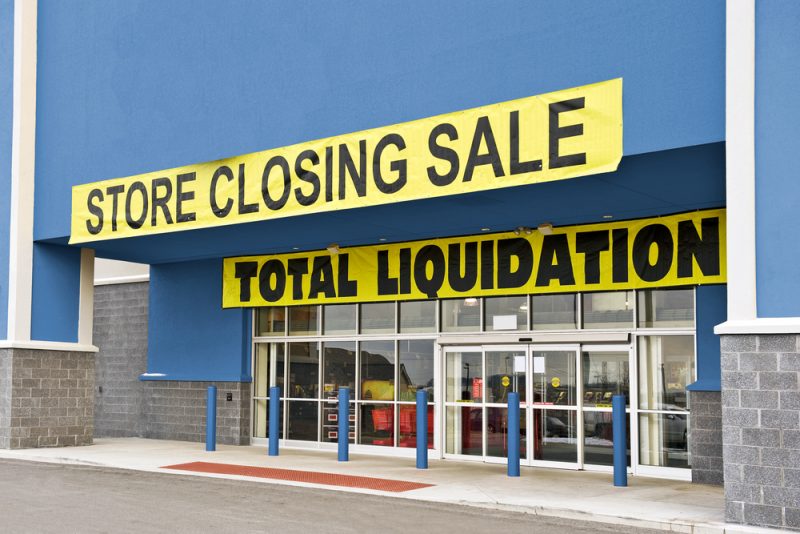The word “liquidation” gets thrown around a lot when selling a business or freeing up assets. As a result, many questions come up with liquidation: is liquidation a bad thing? Why does it get a bad connotation in certain cases but not in others? Is the term “liquidation” synonymous with “going out of business?”
To answer those questions in greater detail, we’ll explain what “liquidation” means, as well as what “going out of business” specifically involves, and then we’ll give the final verdict.

What is liquidation?
According to Business Dictionary, liquidation is defined as follows: “Winding up of a firm by selling off its free (un-pledged) assets to convert them into cash to pay the firm’s unsecured creditors…. Any remaining amount is distributed among the shareholders in proportion to their shareholdings. Liquidation process is initiated either by the shareholders (voluntary liquidation) or by the creditors after obtaining court’s permission (compulsory liquidation).”
Liquidation takes place when a company isn’t profitable enough to pay its debts. It’s a good way to metaphorically wipe the slate clean so a company no longer owes people money. Unfortunately, it ends in the company going out of business. Even worse, if your total assets can’t pay off all of your debt and creditors, then you might have to claim bankruptcy or find another solution to pay off your debt. If there’s any remaining money after the liquidation process, then it goes to the business owner(s), although that’s not typically the case.
To be more literal with the word, liquidation can refer to a product of a company no longer being made or sold. Case in point: Amazon is still a company, but Amazon liquidation pallets are very common and have nothing to do with Amazon going out of business, since the company is still very much in business.
What it means to go out of business
“Going out of business” doesn’t have to mean a company is no longer profitable and needs to sell its assets to pay off debt. It can also mean the owner wants to retire from the business, although that situation is much less common. Selling the company is also a common route taken when “going out of business.” There are different ways to go out business, such as liquidation or claiming bankruptcy.
Are they the same thing?
Liquidation is something you do when you’re going out of business. You sell off your assets, pay off your debt, and then close your business. For that reason, liquidation is often synonymous with going out of business.
However, going out of business isn’t necessarily the same thing as liquidation, because a company could claim bankruptcy instead of going the liquidation route. Not to mention, a company could be in good standing when it comes to debt and also be profitable, but it might sell to an interested buyer because the business owner wants to retire or doesn’t want to pass up a good offer.
Liquidation and bankruptcy are branches, if you will, of going out of business, but liquidation and bankruptcy aren’t necessarily the same thing even though the same result might occur (a business closing). After all, not all bankruptcies require liquidation. While going out of business might sound worse than liquidation on the surface, liquidation typically occurs when a company can’t pay off or keep up with debt.
















